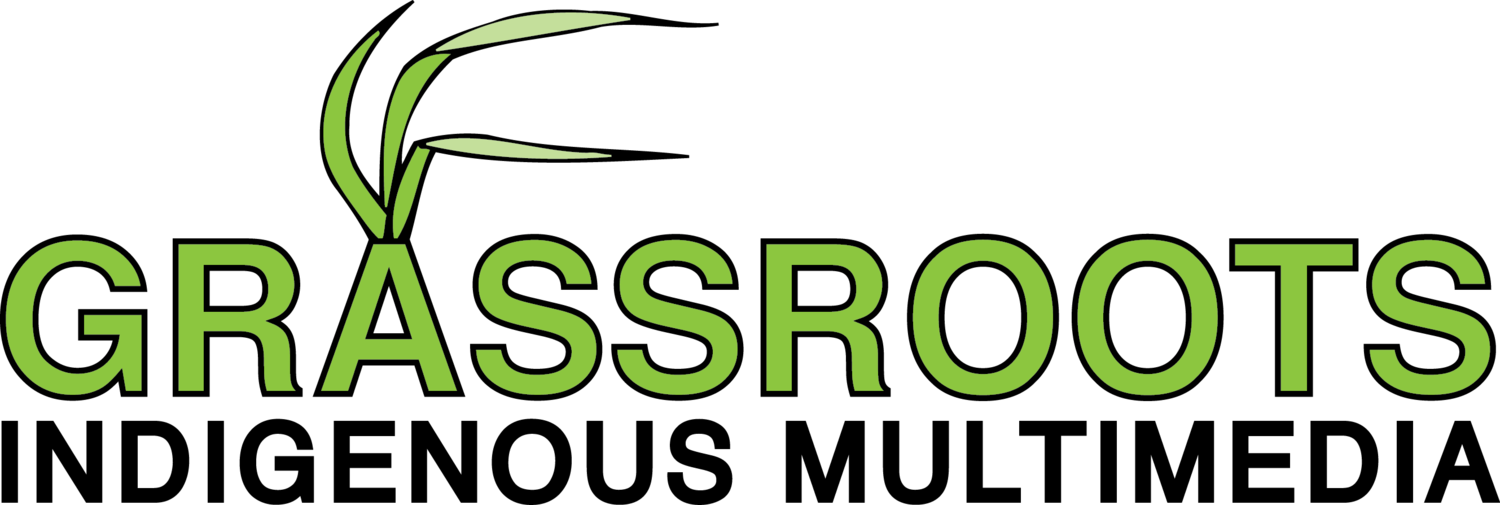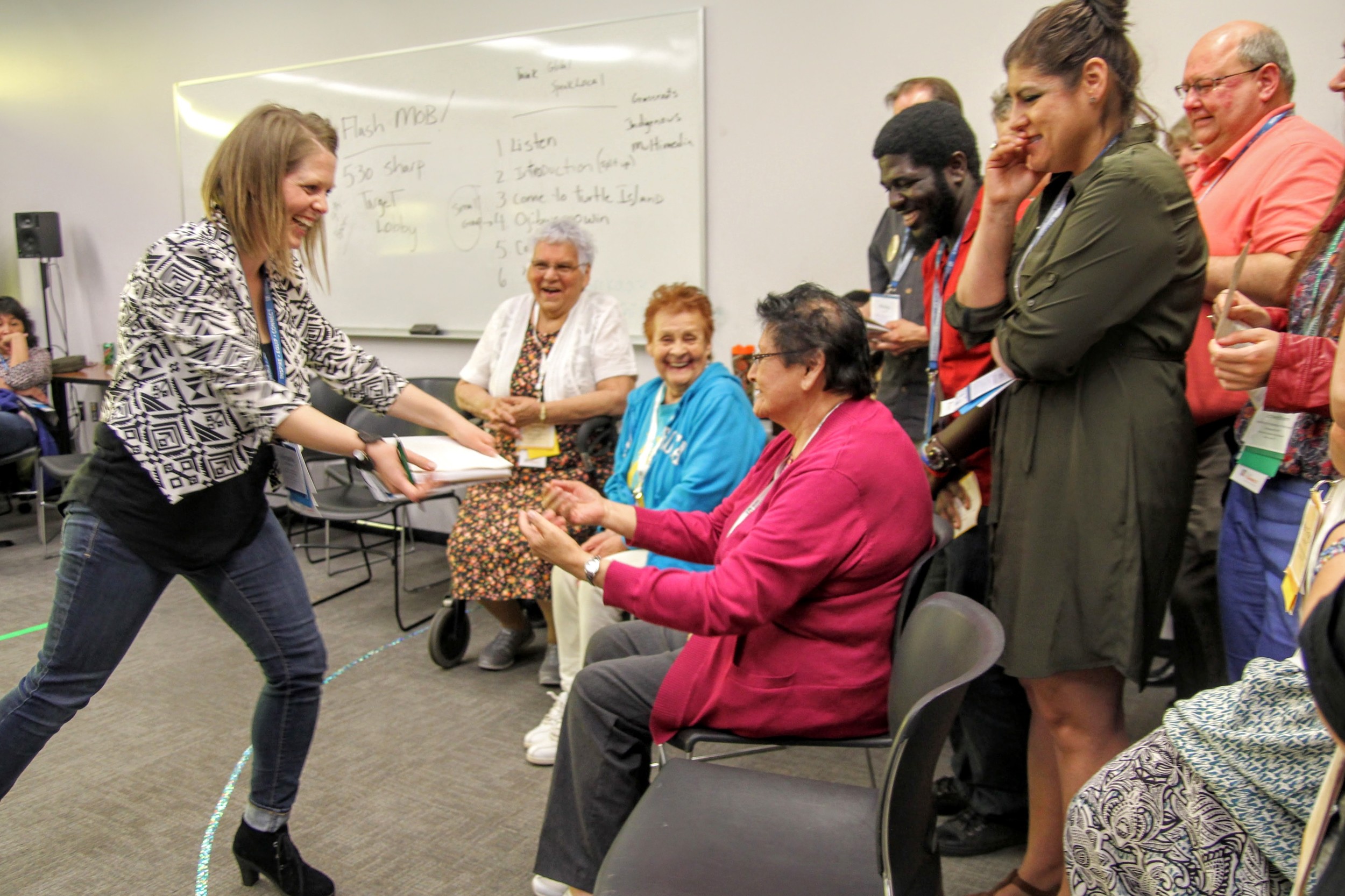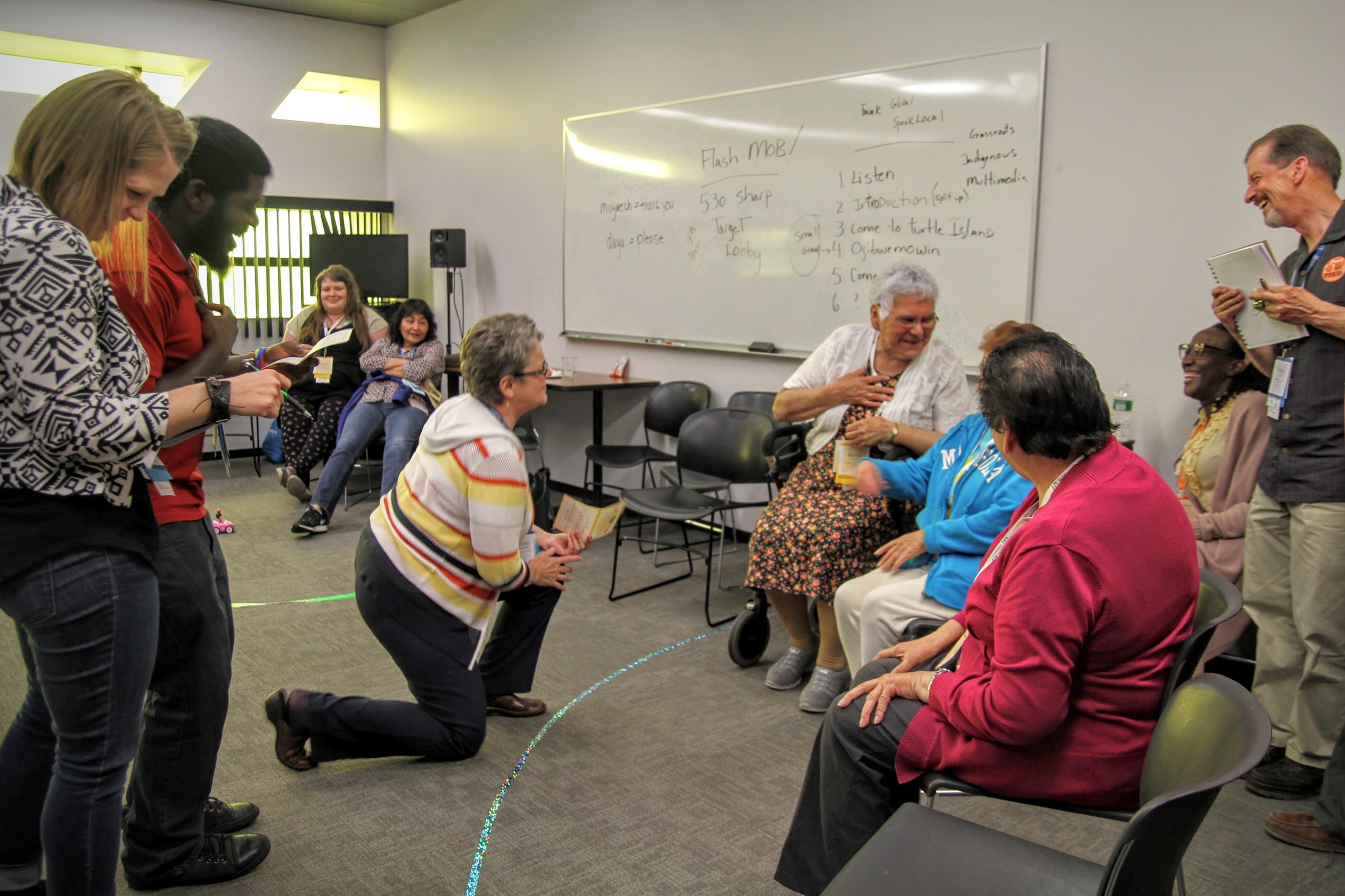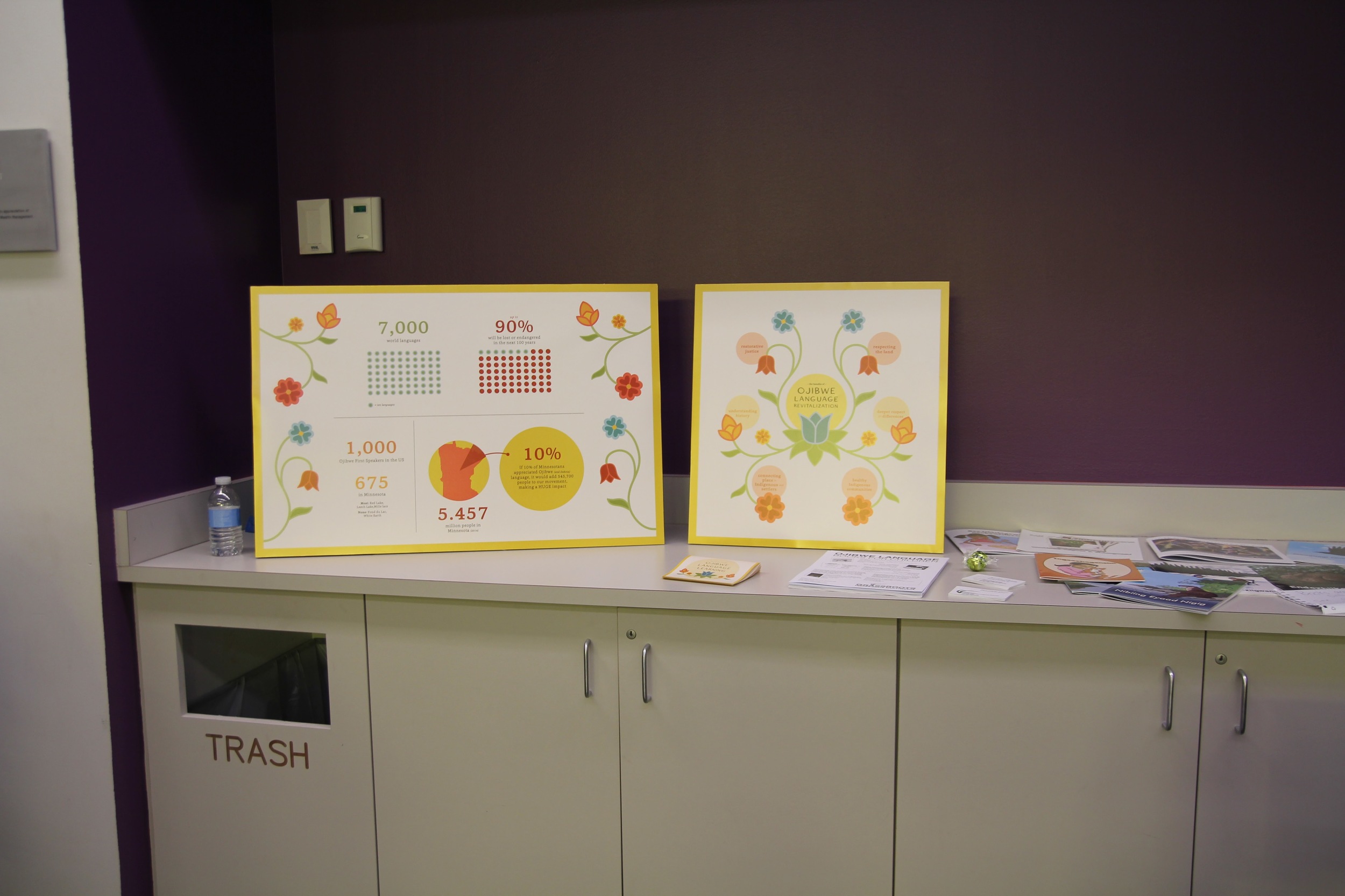Projects
Independent School District 196
With the help of teachers and students in ISD 196, we are developing a series of storybooks and digital companion resources that align with state standards for the teaching of social studies through a critical and Indigenous lens.
Archives and Books
We continue to produce story books from the archives of first speaker language. Check out our newest titles under the 'products' tab: Babaamaadiziwin (a journey through time and across local waterways), Gitigaanangidwaa Opiniig (thriving in community through distributed resources), and Gii-tagoshinowaad Mayagi-waagoshag (treaty rights told through the eyes of a community of foxes).
Documentation
With the success of immersion schools, we have a unique opportunity to witness and understand a wide variety of communicative practices and their development. This work can aid in the efforts of preschools and daycares to use Ojibwe daily, and can provide better support for the growing number of immersion teachers.
Anti-racism and the Ojibwe Language
With support from the Bush Foundation, we are engaged in a new and experimental initiative this year. We are reaching out to and creating discussion spaces to engage White and non-native people of color in Minnesota in considering their responsibilities to the indigenous languages of this land. We want to mobilize guilt or a sense of immobility many feel about the current situation of Native Americans into action for language revitalization and anti-racism.
The language revitalization movement is based partially on numbers. That is to say, if enough people start to use even a little bit of Ojibwe, it helps to shift the general awareness and status of the language. Think of how many Hawaiian words you know and use if you go to Hawaii. This shift in consciousness is a part of the movement.
Reclaim! Game
We are currently 2.5 years into developing Reclaim!, a point-and-click adventure game about a young girl (Miskwaa) who falls asleep in the woods and wakes up in a dream place where time and place, the spiritual and the physical all blend together. Miskwaa must use her wits, her teachings and her Ojibwe language skills to find her way home.
What makes Reclaim! unique is that it presents an Ojibwe language immersion environment while drawing on Ojibwe culture in the context of play. Reclaim! isn’t so much a “language learning” game as it is a “language use” game. Reclaim! aims to provide an immersion experience that’s entertaining, not work or ceremony, in a setting that draws on modern and traditional Ojibwe culture. The ultimate goal is to create a play experience that feels wholly Ojibwe, from the language to the setting.
The puzzles and game design were developed with help from LCO families who attended a series of game design workshops. These are families with one or more young speakers of Ojibwemowin. See their ideas in development on our YouTube channel.
In collaboration with the St. Paul public schools Indian Education, Ojibwe 7000, language learning software, an entire set of lessons (6 for each level (9) of the game) is in simultaneous development. These will be available free of charge at Ojibwe 7000. For a sneak peek of this innovative connection, (characters and animation, real 360 photos of each dream level) create an account here.
Red Lake Nation
GIM staff has collaborated with language educators, advocates, and administrators in Red Lake to grow bilingual language and literacy among young speakers. The momentum in the community is growing, and through our work with teachers and Elders, we are finding new ways to support Ojibwe culture and language in a wide variety of school settings through the creation of books, classroom materials, online tools, digital resources, and assessments.
White Earth Ojibwe Tribal Education Department
A partner for more than six years, we regularly worked with White Earth's Head Start teachers and aides (about 50) to build their Ojibwe language and provide activities and resources they can learn and use with their little ones.
We also worked with White Earth to establish oral proficiency benchmarks. This collaborative effort is intended help the Ojibwe language classes across schools shift to a focus on spoken uses of the language, rather than teaching it as a school subject.
GIM's session at the 2016 Bush Foundation's bushCONNECT Conference, "Speak Local: Anti-Racism through Ojibwe Language Learning". Participants had to learn enough Ojibwe to ask Elders and Indigenous participants if they could "come in" to Turtle Island.
Contact
Mary Hermes, Ph.D., executive director, founder
mhermes@umn.edu
About Us
Grassroots Indigenous Multimedia (GIM) is a nonprofit organization established in 2000 by veteran tribal school teachers Mary Hermes (LCO Ojibwe community member) and Kevin Roach (Bad River Ojibwe) to aid in the efforts of the Ojibwe language revitalization movement through creating and distributing high quality indigenous language materials.
Using tech in innovative ways, Grassroots Indigenous Multimedia aims to help close the gap between those who are trying to learn and the speakers of our indigenous languages. Since our founding, we have developed a strong base of knowledge for documenting elder language and creating accessible learning media for language regeneration. We have developed over 20 picture books, based on Ojibwe conversational archives. In this way, we are re-creating but still responsive to the way past generations spoke and thought.
As of the summer 2022, GIM has been mostly involved in the development of Reclaim! (the video game) and the Reclaim! Ojibwe 7000 software. Some of our key staff are currently working through the University of Minnesota, in partnership with GIM.
We have had over 300 downloads of the demo of the game and over $1000 donations - without even asking! Thank you for your support!
Board
Meg Noodin, (Ojibwe descendant) (Chair)
Carla Miller (LCO Tribal member) (Secretary)
Michelle Sarche (LCO Tribal member) (Treasurer)
Mary Hermes, (Mixed heritage, Ft. Peck descendant, community member) (member)
Megan Bang (Ojibwe descendant, Garden River) (member)
Grassroots Indigenous Multimedia IRS Letter of Non-Profit Status
A copy of Grassroots Indigenous Multimedia's annual Form 990 is available to the public on request.
Staff
Mary Hermes (Mixed heritage adoptee, LCO Community Member) Director
Kevin Roach (Bad River Ojibwe) Founder, Advisor
Angel Dobrow (Chimookoman Ally) Accountant, part time









